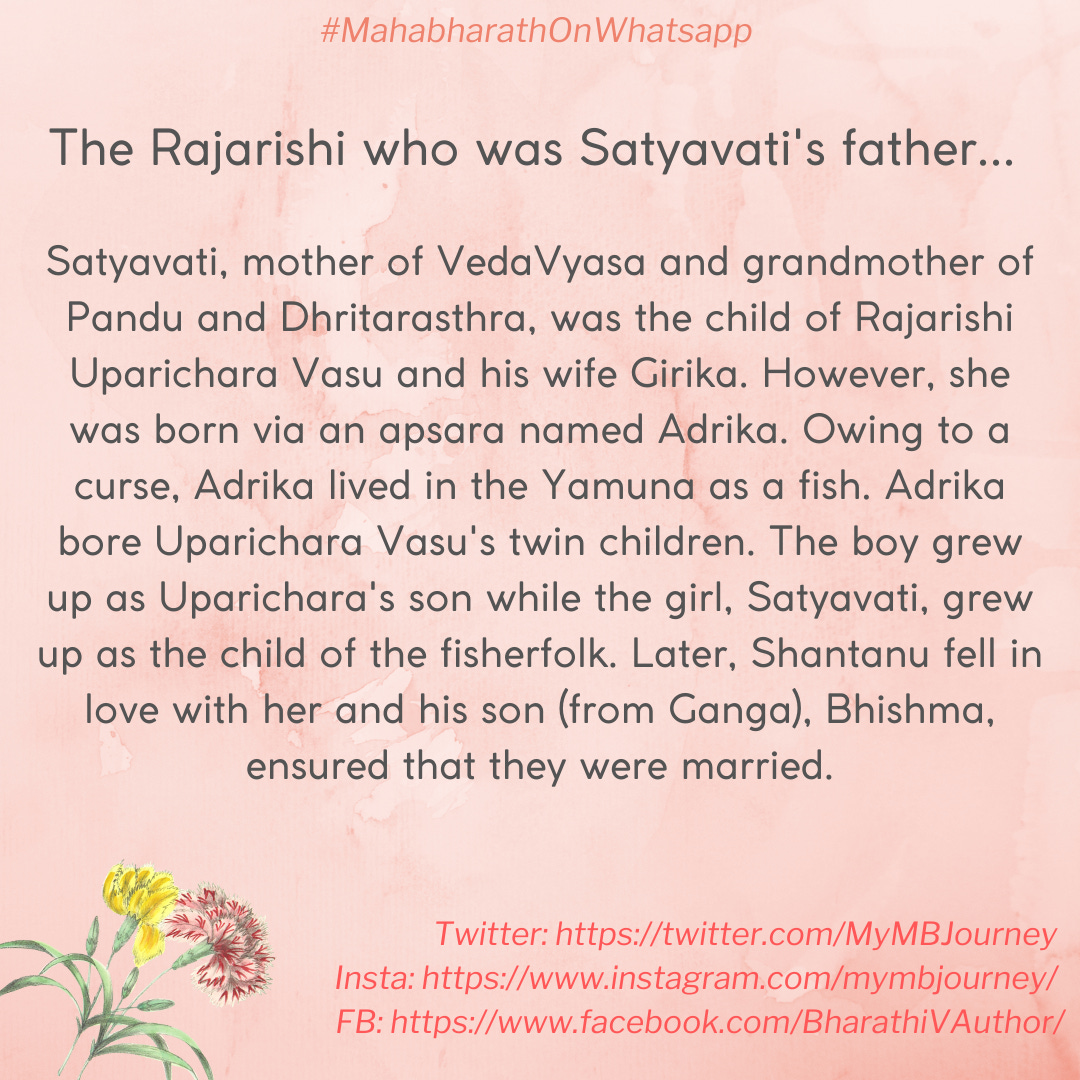Ganga putra Devarata was the perfect Yuvaraja. Shantanu was very pleased that he had made the right decision about the heir to his throne. He continued to rule but Devavrata was taking on more responsibilities too.
Four years passed thus. One day Shantanu was walking along the banks of the Yamuna. A heady fragrance enveloped him suddenly and he was curious to find the source. Following the fragrance, he came upon a beautiful young woman there by the river bank. It was Satyavati, the adopted daughter of the fisherman chief, Dasharaja.
A smitten Shantanu wanted to know who she was and she introduced herself as the daughter of the nishada chief. When he wanted her to marry him, she told Shantanu to ask her father for her hand.
Dasharaja was ecstatic that the king had approached him. He said that, years ago, the biological father of Satyavati, the King Uparichara Vasu (read the tale here), had said that Shantanu would make the ideal husband for his daughter. But Dasharaja had a condition for the marriage- Satyavati’s son must be the heir to the throne.
Shantanu was startled. He had already made Devavrata the yuvaraja and the young man had proved his worth many times over. The king could not agree to the condition. He left Satyavati behind and came back to Hastinapur. But he could not get the lovely young woman out of his mind.
Young Devavrata noticed his father’s listlessness and asked him what was wrong. Shantanu did not speak of Satyavati but he mused aloud that he had only one heir. Devavrata was supremely accomplised but he was also the one who would go to war if the need arose. In such situations, the yuvaraja, the sole heir, would be at considerable risk. If something untoward happened, then the lineage of the Kurus would come to an end.
Devavrata came away thinking about these words. He understood something had happened that he did not know about. He talked to Shantanu’s minister and then his charioteer and came to know about Satyavati. Determined to make his father happy again, Devavrata headed to Dasharaja’s home and asked for the hand of Satyavati for his father.
Dasharaja was happy to see Devavrata but he insisted that the kanya shulk was the kingdom. Devavrata agreed that Satyavati’s child shall rule after Shantanu and that he himself would give up the yuvaraja title.
But Dasharaja still had his doubts. What if Devavrata’s children did not accept this and they overthrew Satyavati’s son? Now Devavrata decided to take a brahmacharya vow- meaning he would never take a wife or have children. The magnitude of this vow taken for the sake of his father was so great that heavenly voices praised him for this ‘Bhishma pratigya’. From this day on, Devavrata came to be known as Bhishma.
Devavrata Bhishma brought Satyavati to Hastinapura and united her with Shantanu. Shantanu was overjoyed with his son and he gave him the boon of ‘iccha mrutyu’- to live until he chooses to die.




